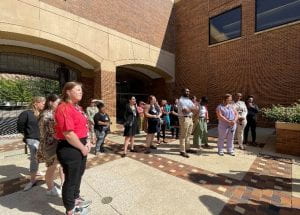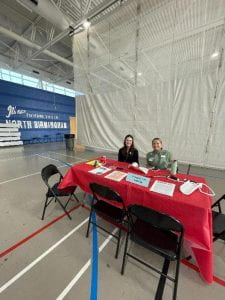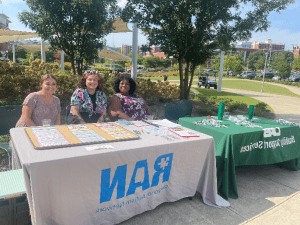On August 18, 2023, incoming LEND trainees participated in the annual Orientation to UAB Civitan-Sparks Clinics and the LEND training program. They learned about the Maternal and Child Health (MCH) program and its origins, what “Individualized Training Plan” means, Justice, Diversity, Equity and Inclusion, research opportunities, and observation scheduling and opportunities. During lunch, trainees from other UAB MCH programs (LEPN, LEAH, and PPC) joined the LEND trainees for a meet and greet session. Representatives from each organization gave brief introductions to their program and how it functions in the UAB/MCH realm. After lunch a CliftonStrengths Portfolio Manager led a class on developing strengths and what those strengths mean for each learner. The day ended with a tour of the clinic space.


In the fall semester, trainees from the UAB LEND program joined other UAB MCH programs on campus with a tour of the Birmingham Civil Rights Institute. The tour was led by Dr. Tamara Coyne-Beasley, division director of Adolescent Medicine/UAB LEAH program, and Charles Woods III, Education Coordinator at the Institute.




